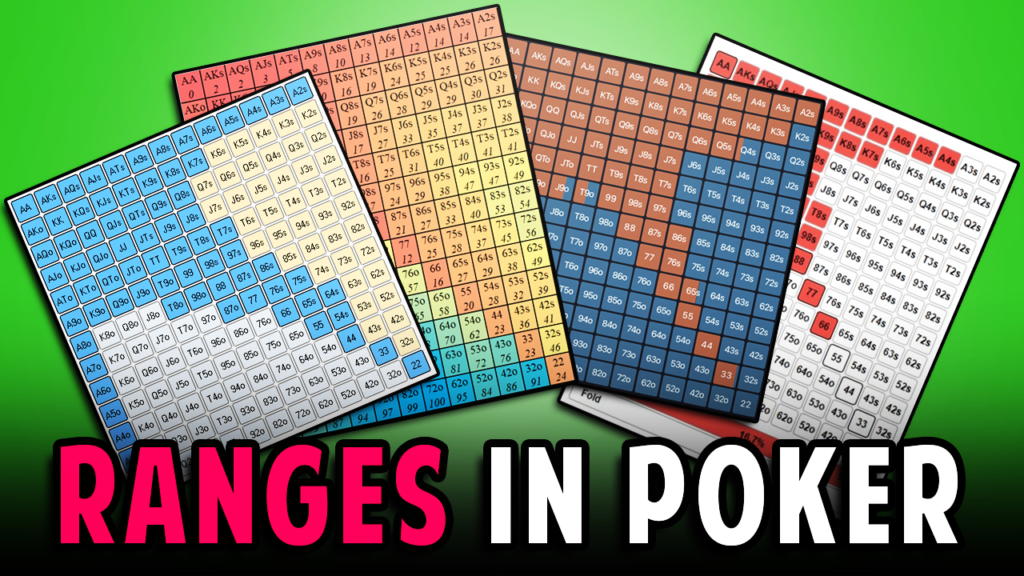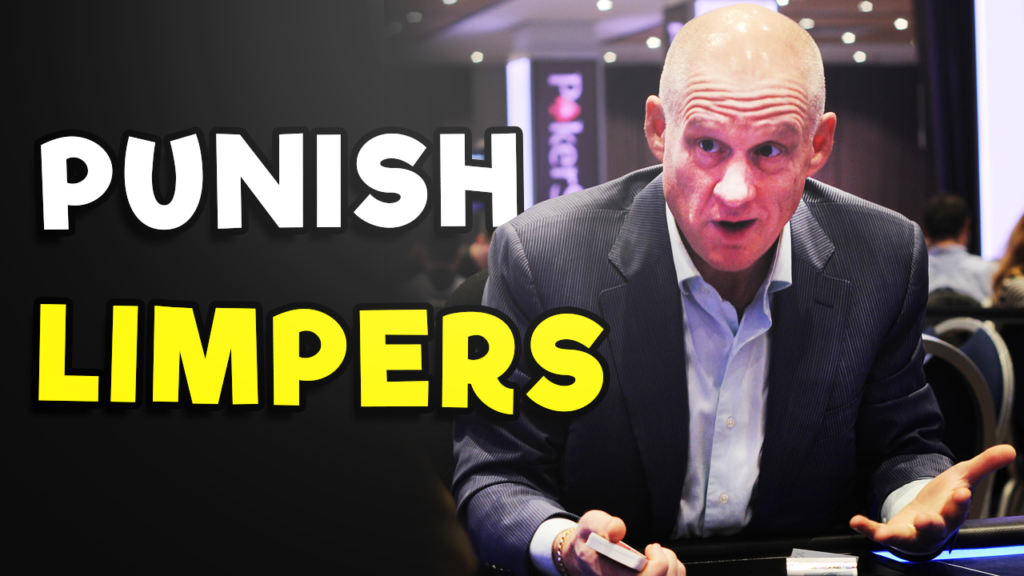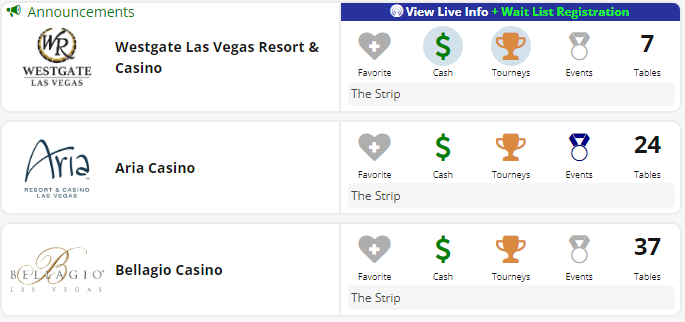Even though the majority of poker players out there think they are big winners in their games, the truth is that it’s very hard to win at poker over the long run.
In fact, only a very small percentage of all poker players are winners, and that is especially true for beginners who know very little about poker strategy. For that reason, a few good poker tips from the pros can’t hurt, and we have exactly that for you right here!
Keep reading and discover the top ten poker tips that will change your game and help you become a more profitable poker player in the shortest possible time.
Poker Tip #1 – Tight is Right
One of the poker phrases you will hear very often from older players is “tight is right.” While some of these players might have the wrong idea about how playing tight should look, the general concept actually makes sense.
Playing too many hands in Texas Hold’em poker leads to a disaster, as it is simply impossible to play a wide range of hands from all positions and remain profitable.
Especially when faced with a competent player pool, you will run into way too much resistance if you try to play a high VPIP and run over the table.
Instead, you should be selective with your starting hands and expand your opening and 3-betting range as you get closer and closer to the button.
You will still want to play quite a few hands from late positions when you are the first player into the pot, but you should significantly tighten up when other players raise.
One thing you definitely want to avoid is calling too many raises with speculative hands, as your mission in poker is not to get lucky and make a hand but rather to win pots and get your opponents to fold their cards.

Learn how to play tight yet aggressive with the proper poker hand ranges.
Poker Tip #2 – Aggression Wins in Poker
While playing tighter than most other beginners is definitely recommended, playing more aggressively than all of them is as well.
The last thing you want to be doing at a poker table is let other players dictate the tempo while you call their raises and try to make hands.
By being passive, you let others bluff you out of pots when they don’t have the goods, and you allow them to realize equity in spots where you could have easily gotten them to fold.
Playing more aggressively than your opponents when you do choose to join the action is a big step toward becoming a winning poker player in the long run.
Keep in mind that only selective aggression wins in poker, while players who try to win every pot usually end up losing their entire bankroll, making balance a critical factor in the equation.
Poker Tip #3 – Don’t Slow Play Your Monsters
Making a monster hand in Texas Hold’em poker is certainly not easy, and it can be very tempting to slow play such hands and wait for our opponents to “hang themselves.”
However, your opponents can’t see your cards, and they don’t know you have the nuts. If you always slow play your nuts and fast play your draws, you will become very exploitable.
In fact, it is probably a better idea to just always fast play your big hands, especially if the opponents you are facing are not highly skillful.
Novice poker players tend to chase too many draws and play way too loose, which means you may get quite a few calls from hands you would never expect.
As a general rule, if you have a big hand, make big bets with it. The times your opponents pay you off with garbage will compensate for the few times you lose your customer by making big bets early in the hand.
Poker Tip #4 – Be Careful with Drawing Hands
If there is one thing that beginners in poker do too much, it is that they chase their draws to the ends of the Earth and back.
Drawing hands like flush draws and straight draws can look pretty, but the truth is they are only good if they get there and can be more useful as bluffing candidates than call down hands.
While there are certainly plenty of times when pot odds dictate you should call bets with your draws, there are also many times when folding is the right play.
Make sure to learn how to use pot odds and implied odds and stick to these concepts whenever you are thinking about making a call with a drawing hand.
Poker Tip #5 – Forget About Limping
In most poker games, limping into pots is not a good idea. If you are going to get in there, you might as well raise it up.
Making a raise instead of calling will give you a chance to pick up the blinds or at least to get some hands between you and the blinds to fold out of the way.
If you limp in, this will invite other players to come along for the ride, lowering your equity, while the more aggressive players will be tempted to raise it up and isolate you. If you call once again against such iso-raises, you will be left playing a guessing game out of position, often hoping to hit the right flop.
Raising allows you to represent a strong range of hands, balance out your stronger and weaker hands, and ensure you are the aggressor in the hand.
Keep in mind that limping in when one or two players in front of you have done the same can be a profitable play with the right hands, especially in live cash games.

Instead of being a limper, CRUSH the limpers with the help of acclaimed poker author Lee Jones.
Poker Tip #6 – Mind Your Bankroll
Bankroll management and playing games you can afford are some of the most important skills for any poker player to learn.
Playing too high or playing with an insufficient bankroll will almost inevitably lead to many different problems and possibly to your entire bankroll being decimated.
Not only is the variance in poker very high, which means you need a solid bankroll to push through it, but you will also not be able to play your best game if your bankroll is very limited for a game you are in.
Don’t let yourself be tricked into playing because “the games are good” if you can’t afford them. Instead, build up a proper bankroll and only play once you can actually afford the swings.

Read one of the highest regarded articles on the PokerCoaching.com blog: The Bankroll Bible
Poker Tip #7 – Find Good Games
Once you know what your bankroll is and you are ready to play, don’t just jump into any poker game that’s being offered. There are many different poker formats out there and many different places to play poker, both online and live.
As a poker player, you should be aiming to mainly play against poker players you have an edge against, which makes game selection a key part of your overall strategy.
If you play too often against players who are better than you, you will end up losing more often than you win, ultimately bleeding money each session you play.
Instead, try to find the best possible games within your buy-in range, and look for game formats that best fit your skill set and current understanding of poker.

Websites like Poker Atlas can help you find out what games are offered near you,
helping you select the best ones to play.
Poker Tip #8 – Remain Patient
More poker players have gone bust due to a lack of patience than any deficiency in their actual poker game.
Poker is a game that requires you to stay focused for many hours, often fold many hands in a row, and remain patient while waiting for the right moments to shine.
If you allow yourself to get bored or tilted by prolonged losing stretches, you will make it nearly impossible to win, as any win rate you have otherwise will be negated by your tilt sessions.
Learn discipline and patience if you want to have any chance of winning at poker, and treat every hand independently, regardless of the results of any previous hands.
This is much easier said than done, and it may take a long time before you get to that level, but we can promise you it will be worth it once you get there.
Poker Tip #9 – Have Realistic Expectations
If you talk to amateur poker players who don’t actually understand poker, you will often see that they have extremely unrealistic expectations.
You want to be better than that, which is why it’s very important to learn about realistic and maintainable win rates in cash games or ROI percentages in poker tournaments very early in your career.
You want to know what the best players in the world are winning in different game types, as this will help you keep things in perspective.
For instance, if the best player in the world can only maintain a 35% ROI in a certain tournament type, don’t expect that you will have 50% in the same games. Of course, the lower you play, the higher % you can have, but you need to keep it realistic.
Learning how to manage your expectations is a very important part of any poker journey, and you should probably spend some time on that before you even get into any serious poker games.

Poker Tip #10 – Avoid Distractions
Poker is a mental game and one that requires your full focus if you want to play it right. This means that things like alcohol, drugs, music, and other distractions should be avoided.
The more distractions you introduce into your poker sessions, the worse your results will be, and there is simply no getting around that.
Try to remain focused on what is going on even when you have folded your cards, as every piece of information you can gather may come in handy at some point.
Keep tabs on your opponents, look for exploits in their games, and figure out ways you can adjust your strategy to counter theirs. None of this is possible if you are distracted, so remember that when you play poker, the game should be the main focus of all your attention. When you master these simple tips, you can move towards more advanced poker strategies or even study GTO poker and take your game to the next level.
Final Thoughts on Our Best Poker Tips from The Pros
Even though many poker players believe they are adept at the game, long-term success in poker is challenging, with only a tiny fraction of players being consistent winners. Key strategies to excel include adopting a tight playing approach, emphasizing controlled aggression, and refraining from slow-playing strong hands. Additionally, it’s imperative to manage one’s bankroll responsibly, carefully select games that match one’s skill level, and maintain realistic expectations about potential returns. Moreover, patience, avoiding distractions, and continuous learning are pivotal to becoming a successful poker player. Following these expert tips can significantly elevate your poker game and boost your chances of consistent success.



